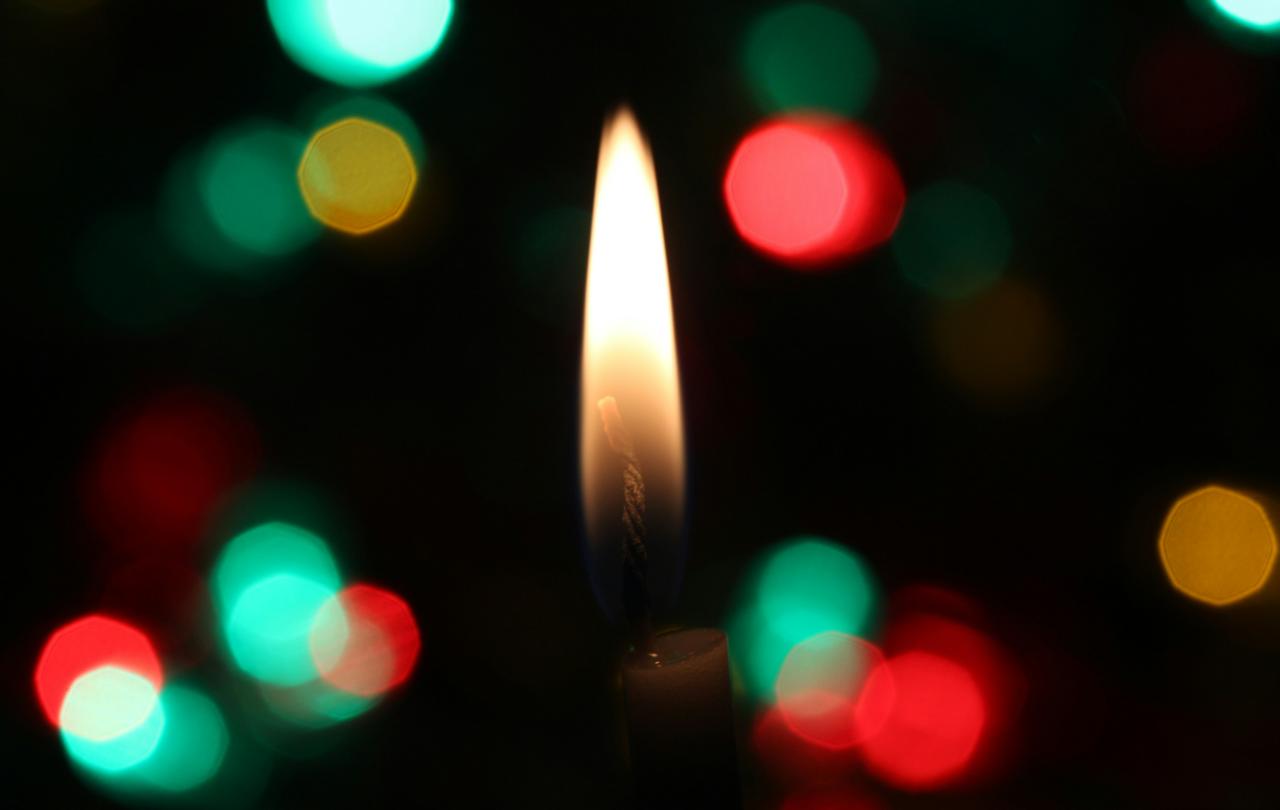
One of those difficult Christmas Day moments is opening a present from someone, only to realise you forgot to get them something. Or the reverse – expecting a present, but not getting it. It leaves you feeling awkward. Like you owe them something. Or they owe you.
The familiarity of the Christmas story also plays into this. We know how it goes. God gives us the baby Jesus. He does it every year. If he didn’t we’d feel short-changed. After all, life is hard sometimes, and, surely, God owes us something.
God Owes us Nothing. This is the title of a book by the philosopher Leszek Kolakowski. The book is actually about Blaise Pascal and the way the Catholic Church rejected the legacy of the great St Augustine when it rejected the Jansenist frame of mind in the seventeenth century, but that's by the by. What got me thinking again is the title: God Owes us Nothing. It's a powerful thought, maybe on first sight depressing, but the more I have thought about it, the key to a whole lot of wisdom.
If God owes me something and he doesn't provide it, I lose faith in God. Our natural cry 'it's not fair' when something bad happens to us reflects this same basic idea – that we somehow deserve fairness or justice.
Kolakowski's point is that this is essentially the insight at the heart of the Augustinian tradition in Christianity, something that runs through much mediaeval thought, to the Middle Ages, through Luther, Calvin and then on to Pascal and beyond.
If God owes me something – happiness, wealth, health or whatever, I will naturally feel short-changed if I don't get it. You regularly hear stories of people who believed in God, until a friend got ill, or died, or they encountered tragedy in the raw, or experienced the aftermath of an earthquake, a war or a tsunami, or encountered real suffering and 'lost their faith'.
I suspect this kind of thing happens because deep down we think that God owes us something, and if God doesn't give it, then the problem is with God – either that he is unkind, or simply doesn't exist. God should step in every time we make a bad choice, or someone else does, because, basically, he owes us. If God owes me something and he doesn't provide it, I lose faith in God. Our natural cry 'it's not fair' when something bad happens to us reflects this same basic idea – that we somehow deserve fairness or justice.
'Gifts' make us grateful, always delighted with the new things that come, and a bit more philosophical about the stuff we lose.
To begin however from the perspective that God owes us nothing – that we have no rights over him, no claim on him, means that everything we do get comes as a gift – as a sheer delight, something to be deeply grateful for. Every breath, friendship, act of kindness, chocolate, football, mistletoe, wintry walks on bright December days – all these are gifts not rights. It suddenly turns everything about my life from something I feel I have right to, and moan mercilessly about if I lose it, to something that is a true surprise.
To that extent the Dawkins atheist brigade have a point – we should not think the universe is made for us, or that we are any more than specks of life on a distant planet, and we should give up our delusions of deserving divine intervention when things go a bit wrong. The essence of Christian faith is the faith that although we should not expect to receive any divine favours, the surprise is that we do receive so much from the hands of God. Despite our insignificance, we have been privileged by God to play a key role on this planet of reflecting his image to the rest of creation, caring for it on his behalf. We do often enjoy gifts of health, laughter, sport, music, shelter etc., and these are neither random accidents of a faceless universe, nor things we have a right to expect because of our inherent deserving, but gratuitous, free gifts from the heart that beats behind it all. And most of all, we are given the gift of Christ as a brother, a friend and a rescuer.
It is so much better to view everything as unexpected and gratuitous gift than as a right. 'Rights' make us grasping, holding onto things and insisting on them – they centre life around me and what I deserve. 'Gifts' make us grateful, always delighted with the new things that come, and a bit more philosophical about the stuff we lose. In the Christian life, if I think God owes me something, then grace and mercy will not seem a miracle to me at all – after all, it's only what I deserve. If God owes us nothing, his grace, the gift of Jesus, the Holy Spirit, his provision of my needs are all miracles, things I don't deserve and thus to be given thanks for with a constant sense of wonder and amazement.
As you look around the living room post-Christmas at the gifts you have been given, whether wanted or not, try to think of them as given from people who owed you nothing, yet gave you something. And then think of everything you receive each day as pure, surprising, delightful gift. And then take that into the new year. It might lead to a truly thankful and (relatively) more carefree life. It is perhaps the key to happiness.





